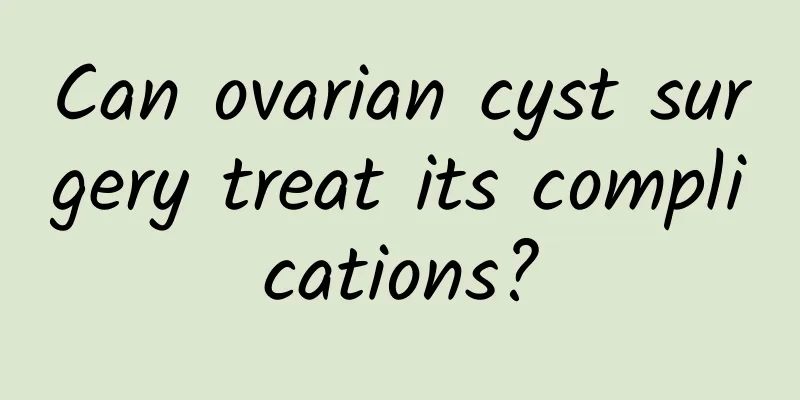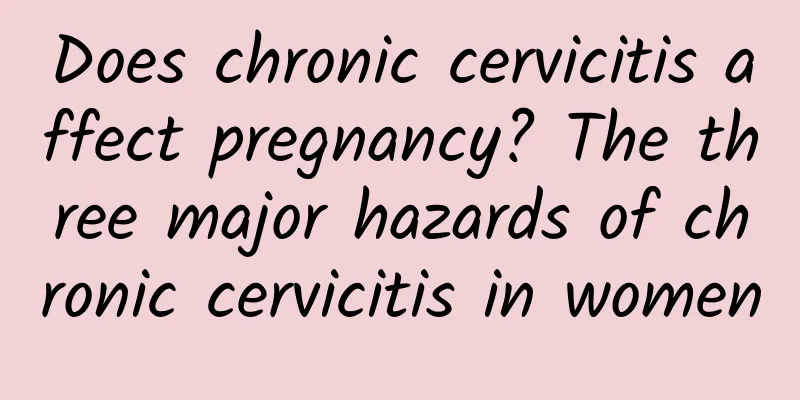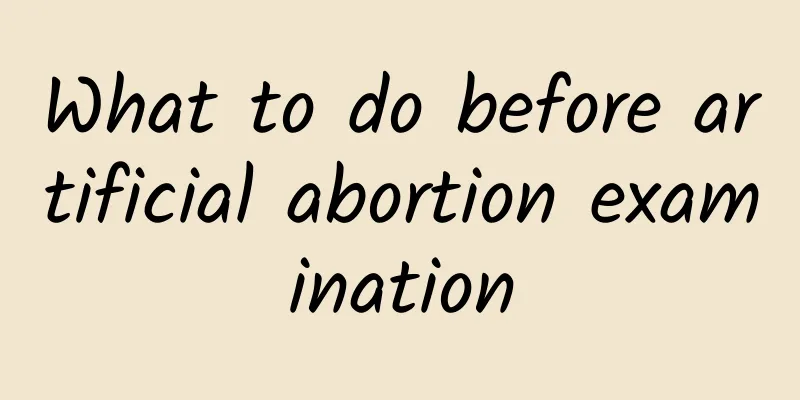Do uterine polyps require surgery? Consider the actual situation

|
How patients with cervical polyps should be treated should be determined based on actual conditions. If the polyps are large, surgical treatment should be chosen. If there are no abnormalities, laser treatment or physical therapy can also be chosen. However, these methods may have their own shortcomings, so the choice should be based on actual conditions. How cervical polyps should be treated actually depends on the severity of the disease, but many patients think that since the disease has appeared, they should choose surgical treatment as soon as possible, so as to truly achieve the effect of controlling the disease and reduce the chance of deterioration. So, do cervical polyps require surgery? |
<<: What medicine is good for intrauterine adhesions? Choose the right treatment
Recommend
People should promptly detect the symptoms of ectopic pregnancy
Ectopic pregnancy is a very common disease among ...
What is the reason for less and darker menstruation?
Small and dark menstrual periods may be caused by...
Why do women suffer from repeated cervical erosion? 7 reasons for repeated cervical erosion
The recurrence of cervical erosion has caused ser...
Severe adnexitis can even lead to infertility.
Patients all know that the harm of adnexitis is s...
Dietary care for patients with uterine fibroids
Uterine fibroids are a common gynecological disea...
The main cause of uterine fibroids
Among gynecological diseases, uterine fibroids is...
Complete super low-calorie delicious dishes in 20 minutes! Curry pork konjac noodles, let you eat full without worrying about getting fat
★Curry pork konjac noodles Nutritional analysis: ...
Childbirth and age are important factors in the occurrence of primary dysmenorrhea
Dysmenorrhea can be divided into secondary dysmen...
Are you ready? - The process of abortion
Do you need to understand abortion for various re...
Several better methods of treating uterine fibroids
Uterine fibroids are a gynecological disease that...
What causes postmenopausal uterine bleeding?
Regarding the causes of menopause, we must analyz...
Can I get pregnant with uterine fibroids?
It is possible to get pregnant with uterine fibro...
Is chocolate cyst prone to recurrence after surgery?
Is chocolate cyst prone to recurrence after surge...
Clinical symptoms of cervical precancerous lesions
What are the clinical symptoms of cervical precan...
I have stomach pain but my period has not come. What's going on?
What's going on when I have stomach pain but ...









